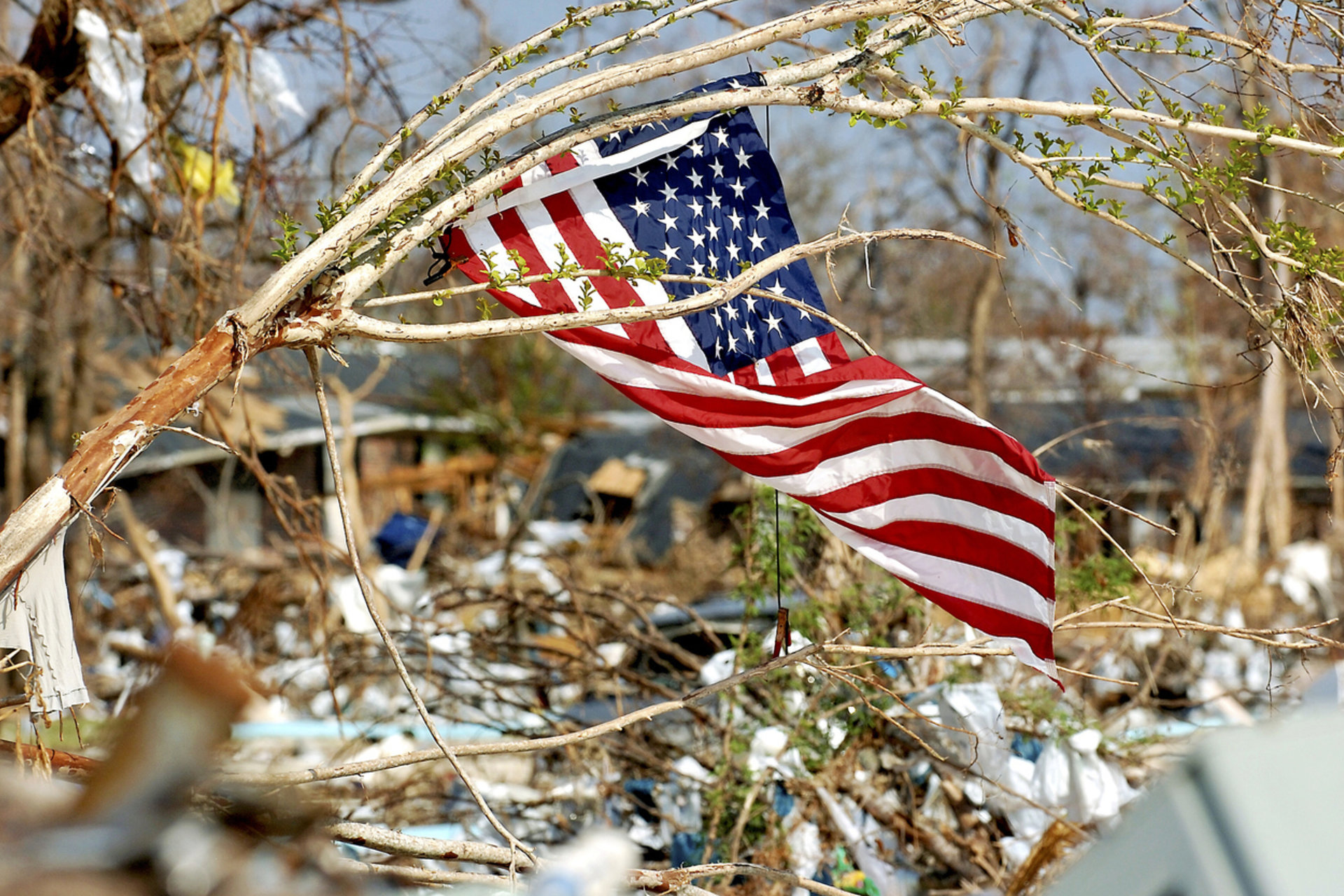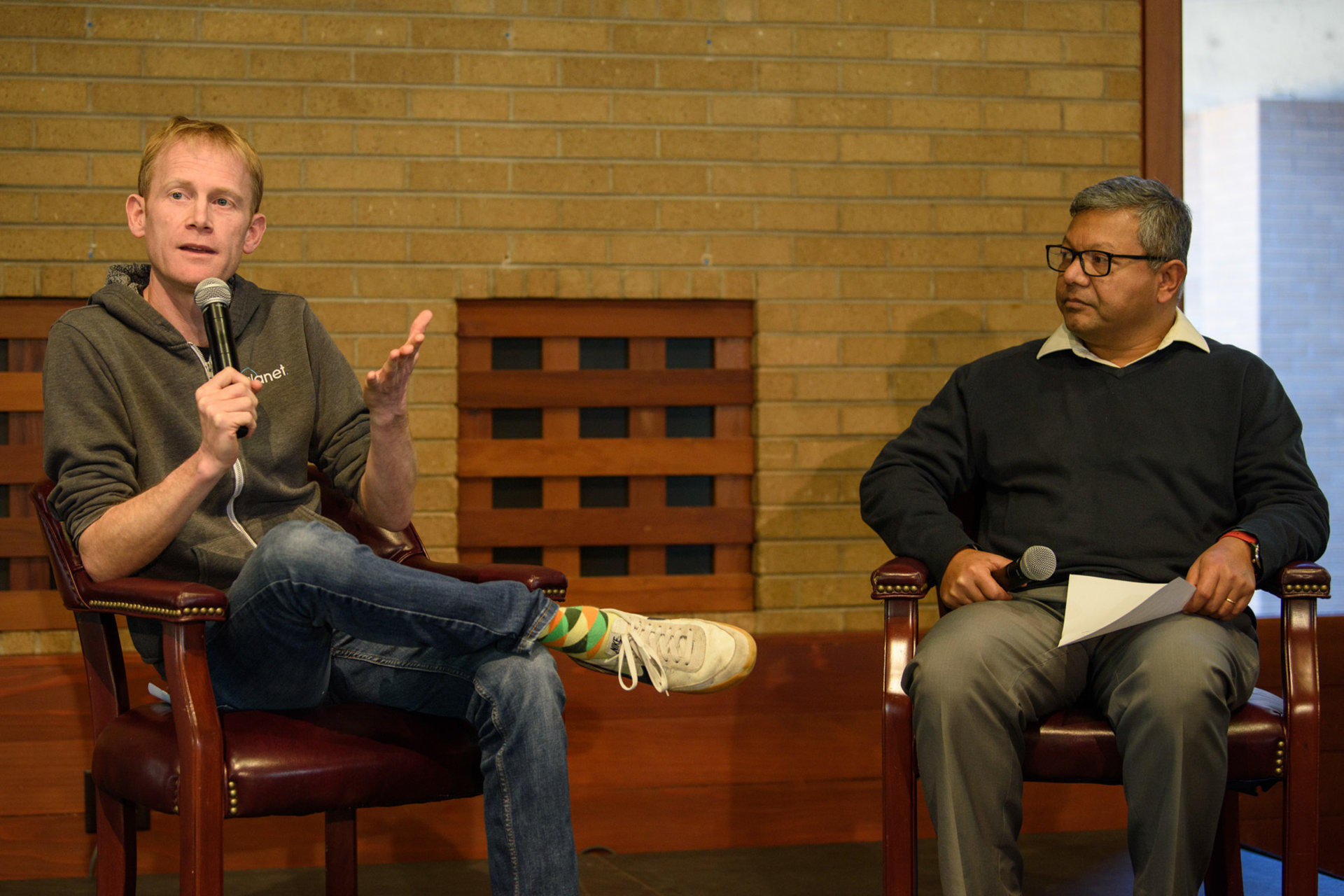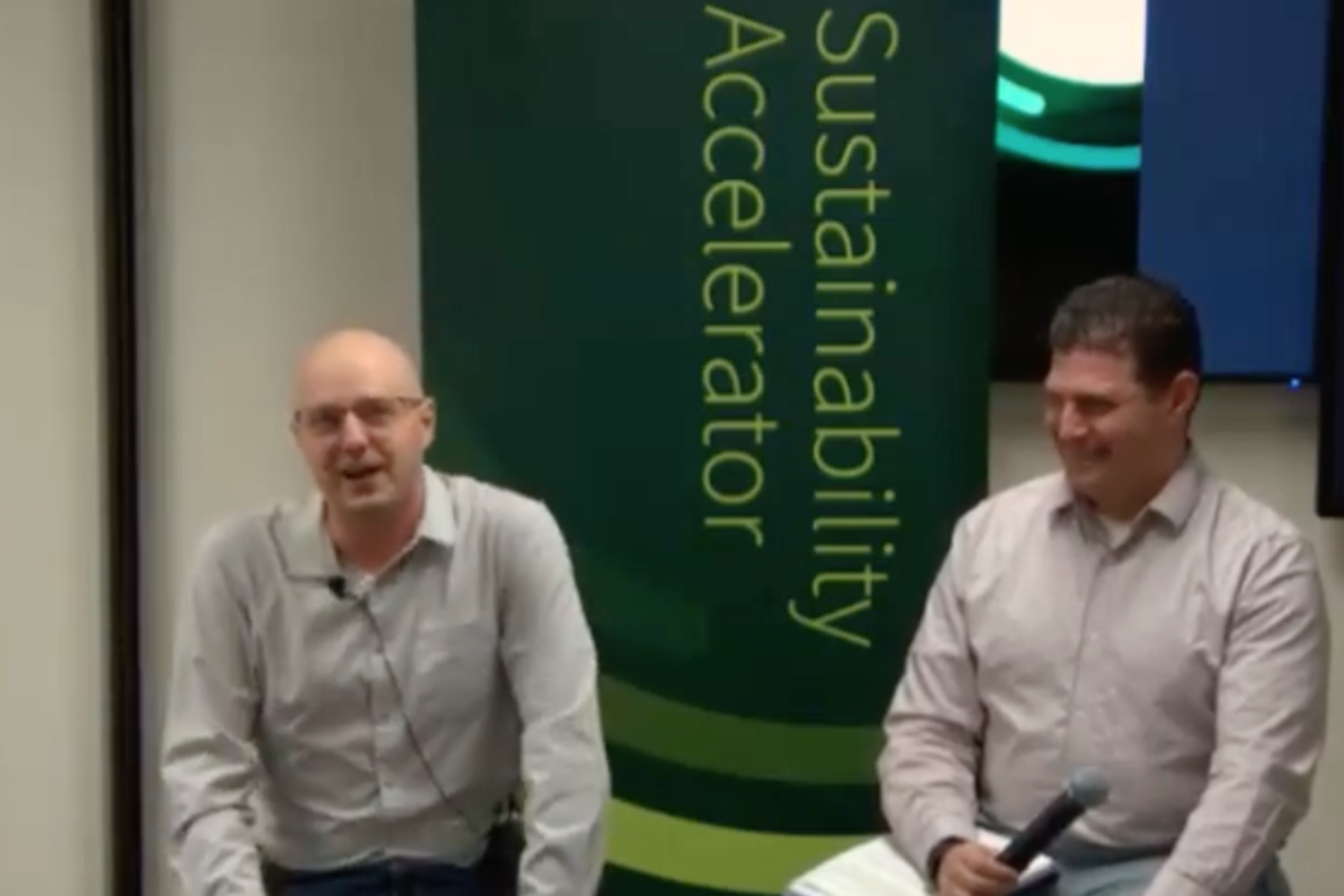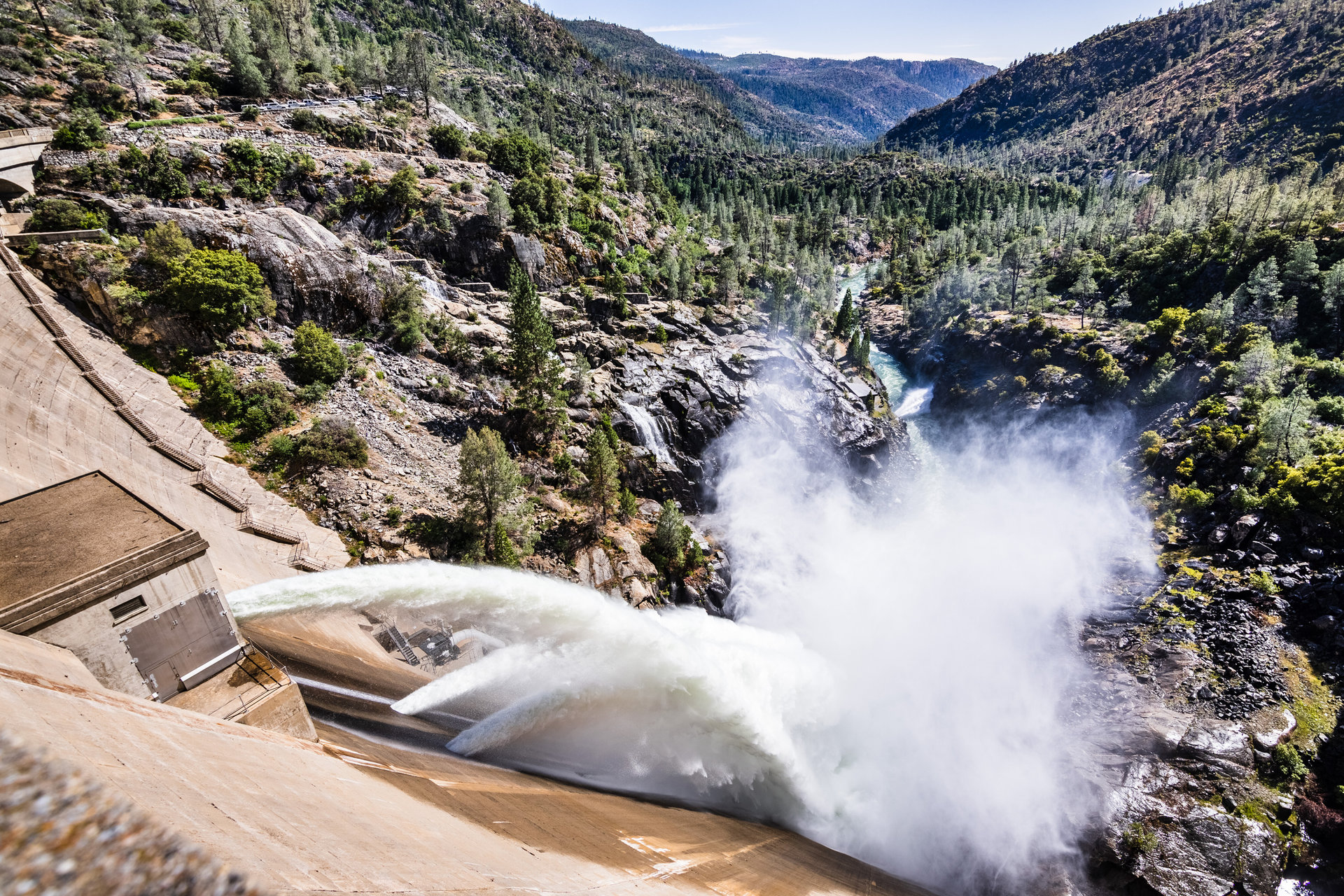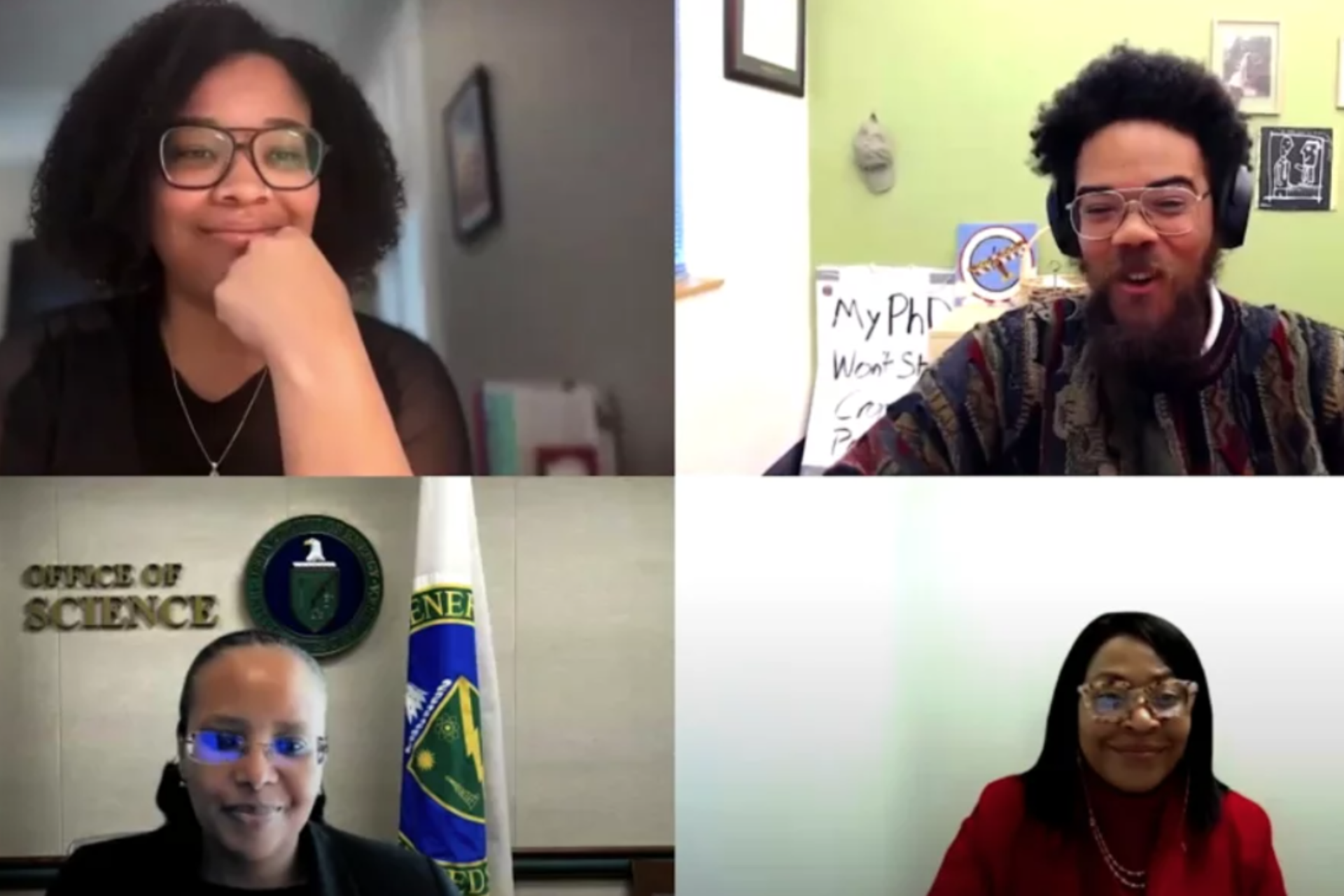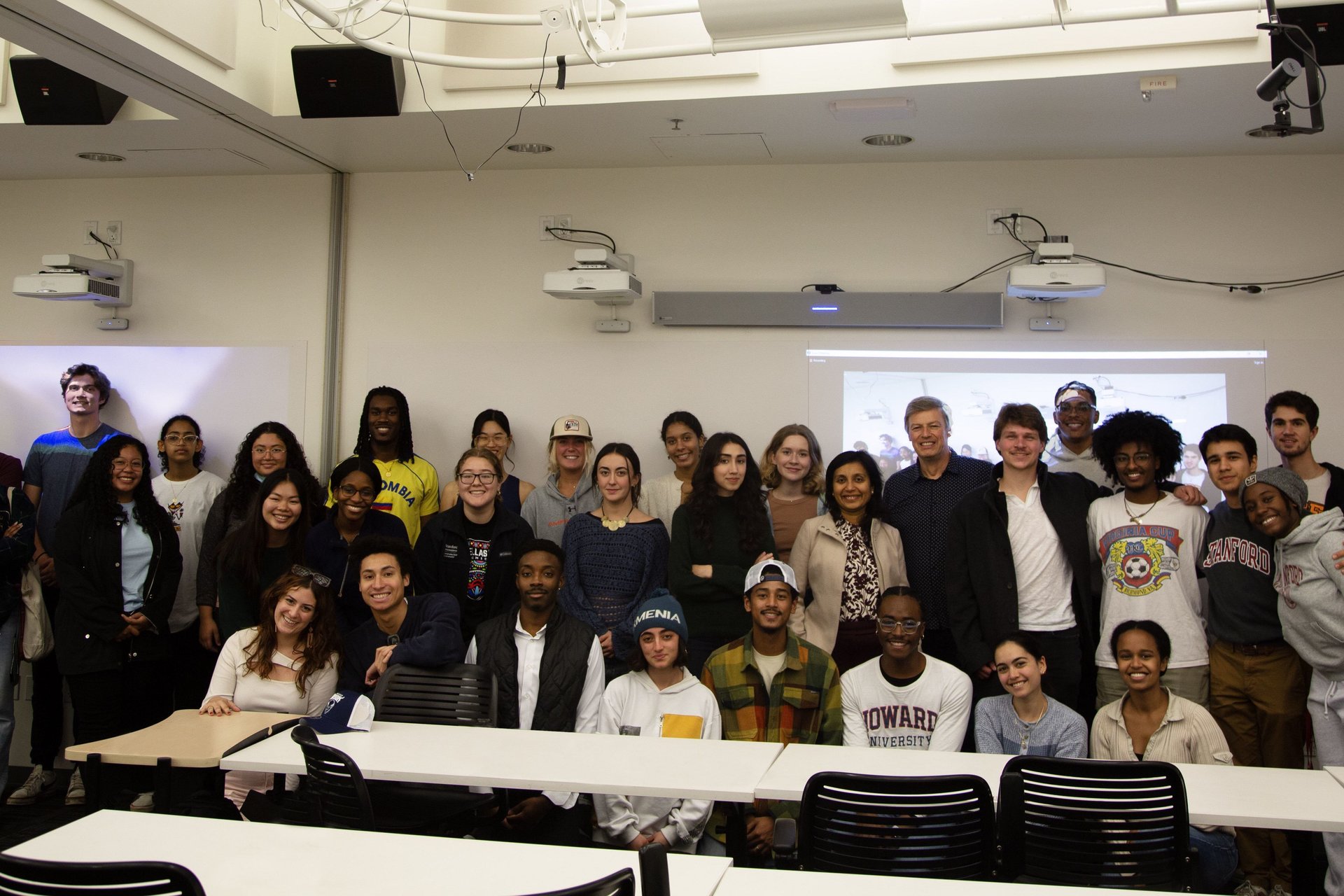Cities & society
-
Stanford scholars are exploring the connection between plastic and disease, rethinking how plastic could be reused, and uncovering new ways to break down waste.
-
Stanford economist Paul Milgrom won a Nobel Prize in part for his role in enabling today’s mobile world. Now he’s tackling a different 21st century challenge: water scarcity.
-
Programs and policies that help households go beyond stocking up on food and medical supplies to invest in longer-term protections could overcome the risk perception gap and support adaptation to rising climate-related threats.
-
Scholars and community leaders gathered at an environmental justice conference to discuss the importance of community-driven research, intersectional frameworks, and institutional legitimacy.
-
A new study finds that factory and warehouse rooftops offer a big untapped opportunity to help disadvantaged communities bridge the solar energy divide.
-
The Stanford Woods Institute for the Environment joins an effort to inform implementation of federal climate policies.
-
At a recent Stanford Doerr School of Sustainability Dean’s Lecture Series event, the Planet Labs CEO discussed how the marriage of satellite imagery and artificial intelligence creates new opportunities to track renewable energy projects, wildfire damage, deforestation, coral reef systems, and more.
-
A pair of Stanford students set out 16 years ago to provide solar lanterns as a cleaner, safer alternative to kerosene lamps. One of them, Nedjip Tozun, spoke at a recent Sustainability Accelerator event about bringing their idea from a class project to a reality in millions of homes in underresourced regions.
-
As policymakers consider updates to the Bay-Delta Plan, a Stanford analysis outlines challenges and strategies to support future water security in the San Francisco Bay Area in the face of climate change.
-
Stanford-led research shows methane emissions from a large share of U.S. oil and gas facilities are three times higher on average than the level predicted by official government estimates.
-
Black Americans have long called on one another to “lift as you climb,” stressing the mutual responsibility to increase access to a work space when you are the first in your community to enter it. This guiding principle set the tone for a recent webinar convened by Earth system science assistant professor Elliott White Jr. and hosted by the Woods Institute for the Environment.
-
A new report looks back at the most impactful environment and sustainability research from Stanford scholars in 2023.
-
The alliance equips future architects, engineers, and builders with the necessary tools and empathy to address the challenges of managing responsible construction projects.
-
Difficulties in connecting charging sites to the grid pose the biggest delays in bringing publicly accessible EV charging stations online.
-
Tess Snyder studies the environmental policy implications of the auto industry, from the emissions effects of tax credit programs for electric vehicles to gas mileage legislation.
-
Researchers found almost no agreement among four widely used poverty measurement approaches.
-
A recent workshop made progress toward centralized tracking of how ecosystem protection and restoration are linked with climate and socio-economic progress in Belize.
-
A new white paper from Planet, Microsoft, the Natural Capital Project, and the Gund Institute shares approaches for companies to meet environmental reporting requirements.
-
Experts discuss how insights from social science research can help U.S. climate policies overcome polarization and spur lasting change in consumer behavior.
-
Stanford experts share their favorite tips for incorporating sustainability into your life at home, at work, and in your community.
-
Professor Barton “Buzz” Thompson discusses his most recent book where he proposes various strategies for solving the United States’ freshwater crisis and argues that government and water authorities can’t do it alone.
-
From a single footfall to catastrophic tremors, waves of impact are all around us. The researchers at the John A. Blume Earthquake Engineering Center study the world’s vibrations – big and small.
-
The Haas Center for Public Service is thrilled to announce a special Mimi and Peter E. Haas Distinguished Visitor program for 2024 focused on environmental sustainability.
-
A new model taps into the power of cooperation to promote sustainable palm oil production in Indonesia.






